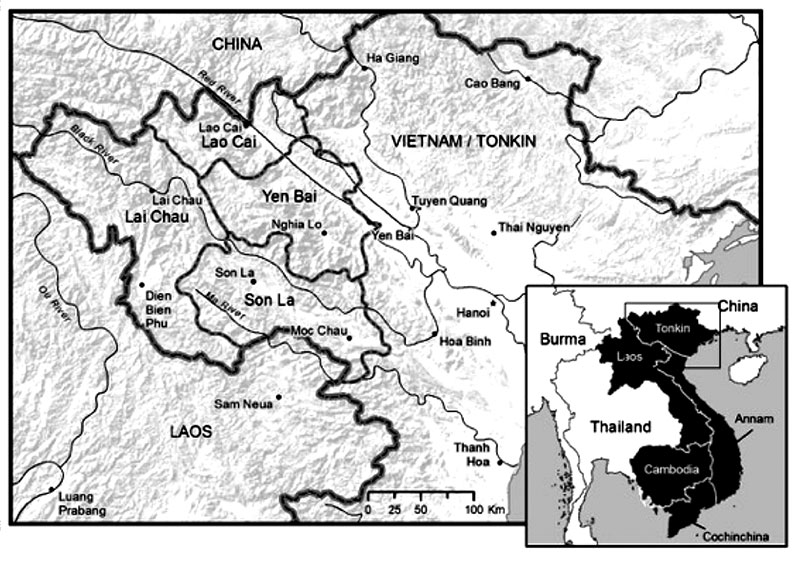page
Contested Territory: America’s Involvement in Southeast Asia, 1945–75

A National Endowment for the Humanities Summer Institute for K–12 Educators
July 18–29, 2022 at the National Humanities Center
OVERVIEW BIOGRAPHIES PARTICIPANTS READINGS Teaching Resources
What do we think of when we think of Vietnam? For many, Vietnam was and remains a war that haunts veterans, families, and politicians. But to think only of the “Vietnam War” overlooks a country and its story. In fact, many Vietnamese wonder why Americans are so preoccupied with the “American War”!
This NEH Summer Institute will explore modern Vietnam in order to situate the American War in broader spatial settings and longer historical contexts. Vietnam’s landscapes range from forests, over mountains, through fields, and downstream to river deltas. Vietnamese lives move from village to city, meander through cafes and rice paddies, cross oceans and land again. Many people called “Vietnamese” today did not even speak the national language until deep into the twentieth century.
This institute aims to introduce a fascinating place rich in history and to animate a geographic and historical perspective among participants. Based on a course developed by Christian C. Lentz from the University of North Carolina at Chapel Hill with assistance from the Carolina Asia Center, the institute offers teachers a chance to learn from Lentz and other scholar-experts about Vietnam and how to teach its history and geography.
Overview

Inspired by cutting-edge scholarship, the institute offers fresh insight into a country all too often viewed from the perspective of American interests and experiences. The theme and title are based on a book by Christian C. Lentz. Based on archival and ethnographic research, Contested Territory: Dien Bien Phu and the Making of Northwest Vietnam excavates the hidden history of a world-historic place and tells a new story about nationalism, territory, and state formation. It views Vietnam from the perspective of a historic borderland where an epic battle in 1954 ended French colonial rule. Doing so opens new vistas on the country’s cultural and ethnic diversity, varied environments and agriculture, as well as rich traditions and everyday customs. The approach cuts a clear path through conventional, yet still contested, representations of war, nation, and memory. Further, it reframes the American intervention as but one of many contests in and over Vietnam.
Led by scholars with a wide range of disciplinary expertise, the institute builds an inter-disciplinary understanding of a place rich in history. It also engages teachers with a past still very much relevant to our present.
Stipend
Participants are offered a stipend of $2,200. This stipend is taxable income. It is intended to help cover travel, housing, and some meals. Academic materials as well as breakfast and lunch will be provided by the Center.
Principles of Civility for NEH Professional Development Programs
NEH Seminars, Institutes, and Landmarks programs are intended to extend and deepen knowledge and understanding of the humanities by focusing on significant topics, texts, and issues; contribute to the intellectual vitality and professional development of participants; and foster a community of inquiry that provides models of excellence in scholarship and teaching.
NEH expects that project directors will take responsibility for encouraging an ethos of openness and respect, upholding the basic norms of civil discourse.
Seminar, Institute, and Landmarks presentations and discussions should be firmly grounded in rigorous scholarship and thoughtful analysis; conducted without partisan advocacy; respectful of divergent views; free of ad hominem commentary; and devoid of ethnic, religious, gender, disability, or racial bias.
NEH welcomes comments, concerns, or suggestions on these principles at questions@neh.gov.
Any views, findings, conclusions or recommendations expressed in this website do not necessarily represent those of the National Endowment for the Humanities.